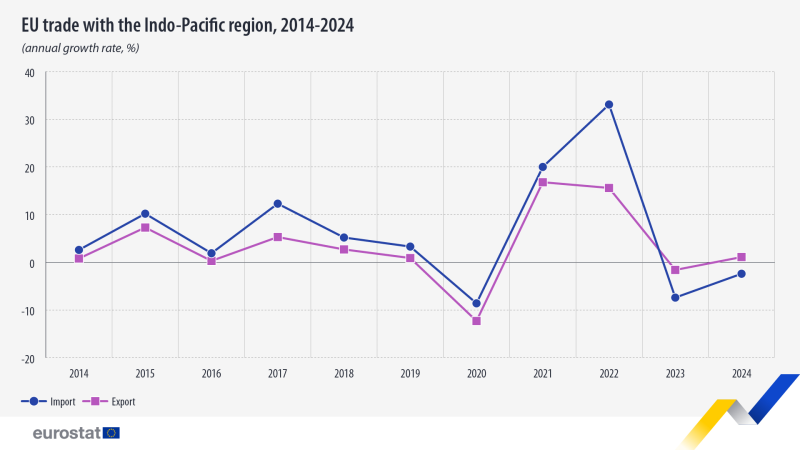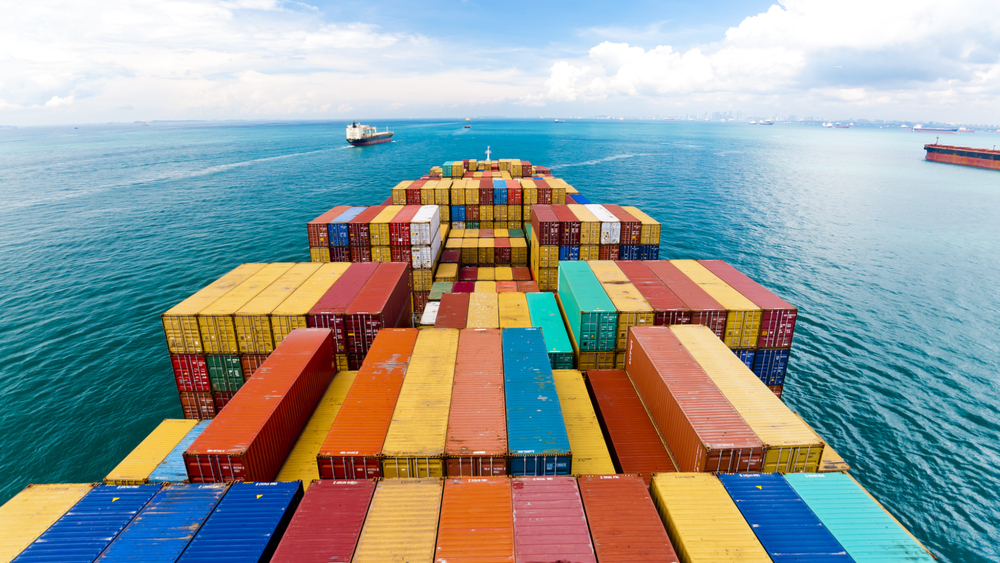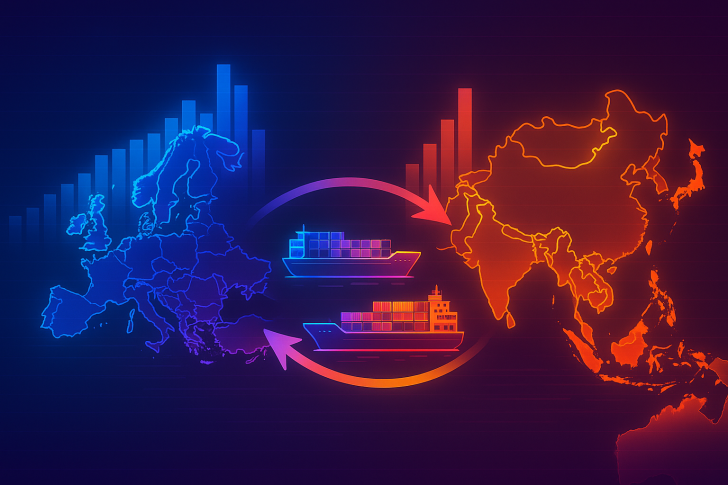● Eurostat's latest numbers paint a picture of dramatic ups and downs in EU trade with the Indo-Pacific region between 2014 and 2024. The story includes everything from pandemic disruptions to major shifts in how global trade routes work. After a wild decade of changes, both imports and exports are now settling into calmer territory following a sharp slowdown last year.

● The data highlights real questions about whether Europe's post-pandemic trade bounce can last, especially as supply chains continue to reorganize. Trade between the EU and major Indo-Pacific economies—think China, India, Japan, and Southeast Asian nations—took a nosedive in 2020 when lockdowns and shipping chaos brought things to a standstill. But then came an explosive comeback. In 2021 and 2022, imports shot up by over 30% while exports jumped nearly 20%, setting records nobody expected. By 2023, though, the party was over. Growth slammed on the brakes and stayed sluggish into early 2024, barely moving above zero.

● From a financial angle, these swings show just how much Europe now relies on Indo-Pacific partners for critical supplies—manufacturing components, semiconductors, and clean energy tech. The recent cooldown could mean less customs revenue and smaller trade-related income for EU budgets. To counter this, the EU is pushing forward with new trade deals with India, Indonesia, and Australia, hoping to spread risk and lock in reliable access to essential goods.
Between 2014–2024, EU trade with the Indo-Pacific region experienced volatile growth rates for both imports and exports. Trade fell in 2020, followed by record annual growth in 2021 and 2022. It declined in 2023, slowing to a minimal drop in 2024. As EU_Eurostat noted
● This whole pattern fits into Europe's bigger Indo-Pacific game plan, which tries to balance keeping trade flowing while staying geopolitically smart. Experts say the 2021–2022 surge was mostly about making up for lost time during COVID, while the current slowdown is actually a return to more normal, sustainable growth—probably healthier for the long haul.
 Peter Smith
Peter Smith

 Peter Smith
Peter Smith


